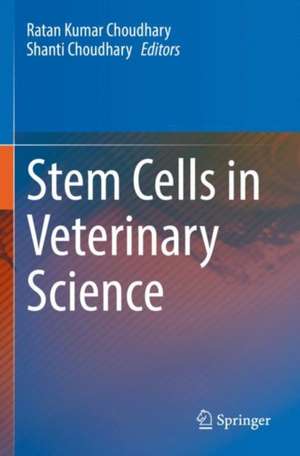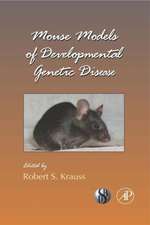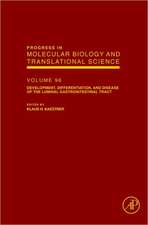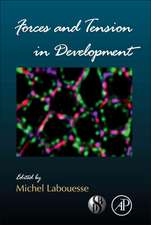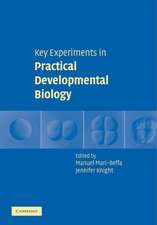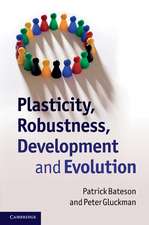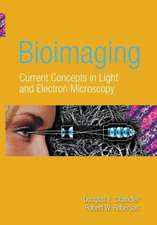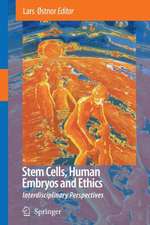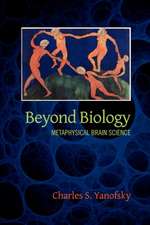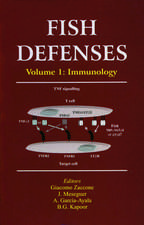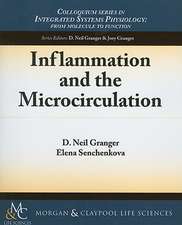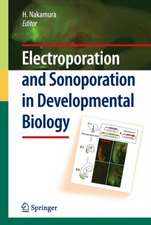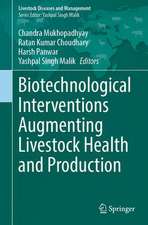Stem Cells in Veterinary Science
Editat de Ratan Kumar Choudhary, Shanti Choudharyen Limba Engleză Paperback – 7 feb 2023
| Toate formatele și edițiile | Preț | Express |
|---|---|---|
| Paperback (1) | 1112.15 lei 6-8 săpt. | |
| Springer Nature Singapore – 7 feb 2023 | 1112.15 lei 6-8 săpt. | |
| Hardback (1) | 1118.30 lei 6-8 săpt. | |
| Springer Nature Singapore – 6 feb 2022 | 1118.30 lei 6-8 săpt. |
Preț: 1112.15 lei
Preț vechi: 1356.29 lei
-18% Nou
212.81€ • 231.89$ • 179.32£
Carte tipărită la comandă
Livrare economică 23 aprilie-07 mai
Specificații
ISBN-10: 9811634661
Pagini: 375
Ilustrații: XII, 375 p. 39 illus. in color.
Dimensiuni: 155 x 235 mm
Greutate: 0.54 kg
Ediția:1st ed. 2021
Editura: Springer Nature Singapore
Colecția Springer
Locul publicării:Singapore, Singapore
Cuprins
Notă biografică
Shanti Choudhary, Ph.D., served at the University of Vermont, Burlington, the USA, as a Lab Manager and Lab Safety Officer for more than a year. She has extensive research experience inmany aspects of molecular biology, including mammary stem cell physiology. She worked at the USDA in Beltsville, USA as a visiting scientist for more than two years, where her focus was on parasitic diseases in animals. She has also worked as a Research Associate at Guru Angad Dev Veterinary and Animal Sciences University. She received a National Post-doctoral Fellowship (N-PDF; SERB-DST, India) for a project on developing an in vitro model for the characterization and manipulation of buffalo mammary stem cells. She has published more than 30 research articles in peer-reviewed international journals and is a member of several scientific societies, e.g., the American Society for Biochemistry and Molecular Biology and the American Dairy Science Association. Currently, she is engaged in teaching at the Students College of Animal Biotechnology, GADVASU, Ludhiana.
Textul de pe ultima copertă
Caracteristici
Descriere
This book explores the potential applications of animal stem cells in veterinary medicine. It begins with an overview of stem cells and their application in treating various animal diseases, including mastitis. In turn, the book discusses the challenges of using stem cells in regenerative medicine and emphasizes the importance of understanding the action of stem cells and preclinical evidence for ensuring safety and therapeutic efficacy. It also presents methods for the identification, characterization, and quantification of stem cells. Further, it discusses the therapeutic applications of different stem cells, including milk-derived, testicular, and mesenchymal stem cells in veterinary medicine. Lastly, it discusses strategies for and therapeutic applications of genome editing by CRISPER/Cas9 in mammary stem cells. As such, the book offers a valuable resource for students and scientists working in the veterinary sciences and veterinarians.
